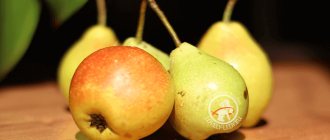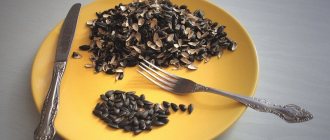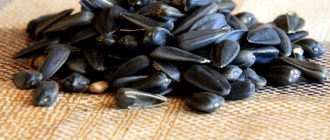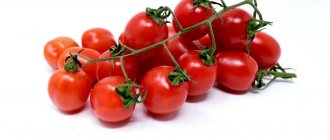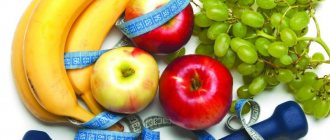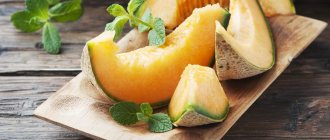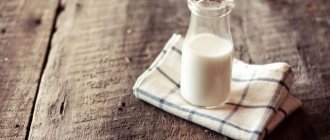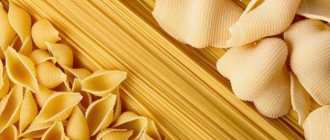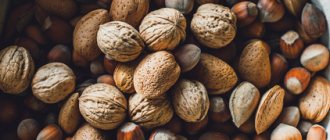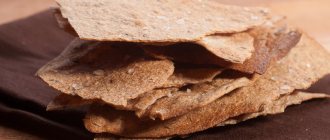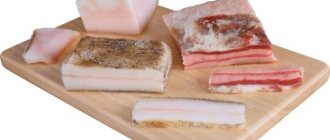What is popcorn made from?
The product is made from a special type of corn grain that “explodes” when heated. Inside each grain contains a small drop of water with dissolved starch. After heating to 100 °C, water boils, but cannot go into a gaseous state due to the lack of free space. Only when the temperature rises to 230 °C does the pressure inside the grain rupture the shell and steam escapes.
A little history
Popcorn has been known to mankind for a long time. This variety of corn comes from America. Geologists have found remains of corn pollen in hard rocks that have been determined to be very ancient. To be more precise, the age of such pollen is about 80 thousand years. The ability of the product to explode when exposed to high temperatures was discovered by the Indians.
If we talk about a more modern way of cooking corn, the idea of this method of cooking belongs to Charles Critors. It was he who invented a special machine for making popcorn and called it a popper. This invention was made in 1885 . However, to prepare the product at home nowadays, it is not at all necessary to purchase a special machine. For cooking corn at home, a type of microwave corn became commercially available in 1984. This popcorn is produced in special packaging that prevents the grains from flying all over the microwave.
Calorie content and chemical composition
| The product's name | Energy value |
| Popcorn with salt | 407 kcal |
| Popcorn with caramel | 401 kcal |
Nutritional information for caramel popcorn:
- proteins - 5.3 g;
- fats - 8.7 g;
- carbohydrates - 76.1 g.
Nutritional value of salted popcorn:
- proteins - 7.3 g;
- fats - 13.5 g;
- carbohydrates - 62.7 g.
Minerals:
- IN 1;
- AT 2;
- AT 6;
- AT 9;
- E.
Although the sweet and salty delicacy contains vitamins, their quantity is extremely small, so popcorn cannot be considered a complete source of vitamins.
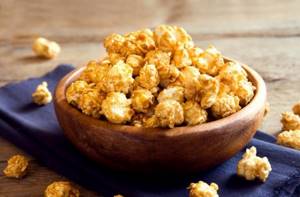
Note that the energy value of raw corn grains per 100 g of product is 86 kcal.
Benefits and harm to the body
Let's consider the beneficial and dangerous properties of the corn product, as well as its effect on the body.
Is it useful?
The benefits of popcorn are as follows:
- a product prepared without using a large amount of oil has a small amount of fat in its composition, and therefore does not lead to obesity;
- the vitamins and minerals contained, as well as slow carbohydrates, are good for health;
- active substances included in the composition prevent the development of cancer and diseases of the cardiovascular system;
- in its pure form it is a dietary product that gives a long-lasting feeling of satiety;
- high fiber content improves intestinal motility;
- It is quickly digested, so it can be consumed at night.
Why is it harmful?
This product also contains harmful properties:
- during the cooking process, dyes and flavors are added that are harmful to the liver;
- corn is cooked without changing the oil, which is why the popcorn is saturated with carcinogens;
- flavoring additives lead to exacerbation of gastritis and ulcers;
- a large amount of salt disrupts water metabolism and also leads to edema;
- the sweet version of the product loads the pancreas and also sharply increases blood sugar levels, so the product is dangerous for children;
- Strong-smelling popcorn uses diacetyl, a carcinogenic chemical linked to lung dysfunction and Alzheimer's disease;
- Some supplements are addictive.
Grams of carbohydrates
Popcorn is a rich source of carbohydrates but also contains small amounts of protein. Experts advise consuming between 85 grams and 113 grams of grain products per day. On a low-carb diet, you may want to cut this amount in half. Since popcorn is quite light and airy, 28 grams equals 3 servings. This serving contains less than 20 grams of carbohydrates and about 3 grams of protein.
Types of popcorn
A low-carb diet limits the amount of high-fiber foods. Almost 75 percent of the carbohydrates in popcorn are starch. This type of carbohydrate is instantly absorbed and provides your body with the energy it needs. The remaining 25 percent comes from fiber. Popcorn is a good source of insoluble fiber, which remains intact in the intestines and helps digest food. In addition, insoluble fibers take longer to chew. This helps you lose excess weight because you are less likely to overeat. Eating fiber-rich popcorn will help you avoid constant snacking.
Popcorn is low in fat and calories. Adding butter or other additives to popcorn will increase the amount of nutrients. This way you will increase the number of calories you consume. 3 servings of popcorn contain 1 gram of fat. By adding butter or another additive to the popcorn, this figure will increase to 10 grams. You can add hot sauce, garlic seasoning or cinnamon for flavor. These additives will improve the taste, but will not increase the amount of air, calories or carbohydrates.
Based on materials:
https://livewell.jillianmichaels.com/popcorn-lowcarb-diet-5134.html
A low-carb diet requires you to reduce the amount of carbohydrate-rich foods you eat, such as fruits, vegetables and grains. On a typical 2,000 calorie diet, you should consume between 225 grams and 325 grams of carbohydrates. A low-carb diet reduces this amount to 50–150 grams. Even though popcorn also contains carbohydrates,...
Popcorn on a low carb diet
Popcorn on a low carb diet
Irina Mishina
The benefits and harms of popcorn on a diet.
Popcorn is considered the best snack when watching movies. Many people think this product is harmful, but in fact it is not. The product contains many vitamins and nutrients. Only additives are harmful.
Is it possible to eat popcorn
The beneficial and dangerous properties of the product are contradictory, so it is necessary to understand whether it is worth consuming the delicacy in case of illness, as well as in special conditions.
During pregnancy
Pregnant women should refrain from consuming the finished product, which is sold near cinemas and in markets.
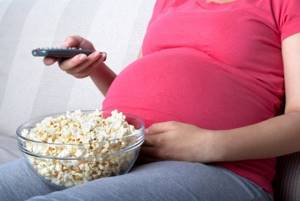
The abundance of various flavoring additives and fats makes the delicacy extremely dangerous for the health of the child and mother. However, it is not prohibited to eat popcorn made at home. To do this, you need to purchase grains without any additives, then fry them in a frying pan or cook them in the microwave. Ready-made cereal should not be sprinkled with salt or sugar.
For pregnant women, the product will be a valuable source of fiber, which will relieve constipation and also help not gain excess weight.
When breastfeeding
A nursing mother needs a complete diet, however, many foods are prohibited for consumption due to their allergenicity. When breastfeeding, it is allowed to eat popcorn, but in moderation and without any flavoring additives.

It is worth understanding that the pure product is unfolded wheat grains that do not contain dangerous compounds. Even after heating, carcinogens do not form in them, so there is no reason to refuse delicious cereal.
Reviews of those losing weight
Olga, 27 years old, Moscow
Homemade popcorn made with olive oil is amazing! Just don't add butter or sugar to it. For me, this is an excellent replacement for unhealthy potato chips and salted nuts.
Rosa, 35 years old, Ufa
I’m on a diet and tried to include popcorn in the menu. On the plus side, I note that the price is affordable for different categories of the population, including state employees, students and retirees. The downside is that I lost only two kilograms in four days, although I expected more.
Olesya, 28 years old, Izhevsk
I love corn, I decided to introduce popcorn into my diet for a week, it was enough to lose almost 3 kg, the result is excellent. The advantage of popcorn is that it helps to cleanse the body well and cope with constipation, if any. I didn’t feel hungry because... I ate popcorn during snacks. But it would hardly have lasted more than a week.
How to make popcorn at home
We offer a recipe for preparing a high-quality natural product that will only benefit your health.
- corn kernels for popcorn without additives in sealed packaging;
- sunflower or edible coconut oil.
- Take a 3-4 liter saucepan, rinse and wipe dry.
- Spread 2-3 tbsp evenly over the bottom. l. oil, then place on the stove and heat to the required temperature.
- To understand when to add corn, you need to throw in 1 grain and wait. If it bursts, the oil is hot enough.
- Pour some popcorn into the pan so that it completely covers the bottom, and at the same time comes into contact with the oil and the iron surface of the pan. Keep in mind that the volume of the finished product is tens of times greater than the volume of grains.
- Cover the pan with a lid, then wait 2-3 minutes.
- When the “explosions” stop, remove the pan from the stove and immediately check for readiness.
Calorie content and chemical composition of popcorn
This product contains starch, which makes it nutritious. After cooking, the nutritional value of popcorn increases when losing weight, but the weight of the product, on the contrary, decreases. 100 g of popcorn contains 80 g of carbohydrates. Other ingredients included:
The calorie content of 100 g of product is 86 kcal, so you can consume popcorn in large quantities without harming your figure.
The nutritional value of popcorn depends on the presence of additives, sugar and vegetable oil. For example, caramel contains 50 kcal more.

Can you lose weight or gain weight or gain weight from popcorn?
It all depends on the amount of food eaten and supplements. The air lumps themselves are very light. A handful of grains can make 2 liters of popcorn. Accordingly, the weight of the product is small. One serving sold at the cinema contains only 70 calories. It is worth considering that the data is given for a product without sugar, caramel and other additives.
If you eat popcorn made with butter, sugar or caramel, you can really gain weight. But if you prepare the product yourself without high-calorie additives, then you will not have problems with weight.
Is it possible to eat popcorn while losing weight?
Popcorn can be included in various nutrition plans. If you make corn yourself, the product will be healthy and low in calories. If you have any doubts, you should contact a nutritionist and find out whether you can eat popcorn on your diet and in what quantities. If you do not follow the recommendations of a specialist, you can gain weight even more, especially if you consume a product that contains caramel, sugar and other high-calorie additives.
You can eat popcorn on a diet, but it must be natural. To do this, it is advisable to prepare it yourself, without adding sugar and vegetable oil.
Popcorn can replace regular bread. This product goes well with cheeses, seeds, spices and dried fruits. As a result, the snack will be more tasty and healthy.
Use in healthy and therapeutic nutrition
Most people add flavor to popcorn using salt or butter. This is the worst way to prepare a healthy snack because the oil releases carcinogens when heated. An excellent replacement for these harmful ingredients is garlic, onion, grated cheese, oregano, basil or cinnamon.
Popcorn goes with:
- with spices (chili, garlic powder, paprika);
- with cheeses (parmesan, mozzarella);
- with dried fruits (,);
- with seeds (,).
Many people prefer to sprinkle popcorn with grated chocolate or roll the kernels in honey.
